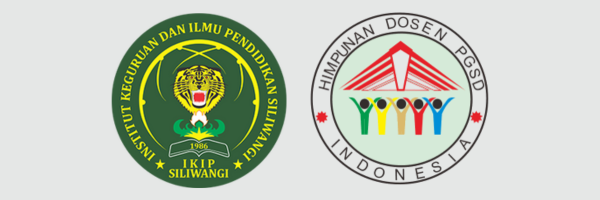TEACHER STRATEGY IN DEVELOPMENT PROSOCIAL BEHAVIOR OF STUDENTS IN ELEMENTARY SCHOOL
DOI:
https://doi.org/10.22460/pej.v3i1.1231Abstract
Entering the digital age all information cannot be selectively displayed. Freedom in the digital age can affect the behavior patterns of students whether positive behavior or negative behavior. In an effort to prevent the emergence of negative behavior in students, it requires an environment that shapes good behavior such as prosocial behavior. Prosocial behavior really needs to be developed to prevent moral degradation. The formation of prosocial behavior can be done in a student environment such as at school. This study aims to analyze the teacher's strategy in developing students' prosocial behavior in religious-based elementary schools. The research applied a qualitative approach within the case study method. The researcher involved the teacher as the research subject located in the city of Bandung. The data collection techniques used observation, interviews, and documentation. Then, the validity of the data used triangulation techniques while the data is analyzed through thematic analysis. The finding of the research showed that there is a teacher strategy to develop prosocial behavior of students in religious based elementary schools. Giving motivation and modelling strategy are the teacher’s strategy that most widely shown.
References
Alam, R.B. (2016). Pengaruh kegiatan rutin infaq setiap hari Jumat terhadap perilaku prososial siswa kelas Vdi SD Negeri Bantarkawung 01 Tahun Pelajaran 2015/2016. Universitas Peradaban.
Bashori, K. (2017). Menyemai perilaku prososial siswa di sekolah. SUKMA: Jurnal Pendidikan, 1 (1): 57-92.
Carlo, G. (2014). The development and correlates of prosocial moral behaviors. In M. Killen & J. G. Smetana (Eds.), Handbook of moral development (2nd ed., pp. 208-234). New York, NY: Psychology Press.
Creswell, J.W. (2013). Research design: Pendekatan kualitatif, kuantitatif, dan mixed. Yogyakarta: Pustaka Pelajar.
Crowe, S., et al. (2011). The case study approach. BMC Medical Research Methodology, 11(1): pp.100.
Eisenberg, N. & Mussen, P.H. (1997). The roots of prosocial behavior in children. Cambridge : Cambridge University Press.
Hasegawa, M., et al. (2016). A two-wave panel investigation of the influence of viewing prosocial behaviour on television on the sociality of elementary school children in Japan. Media Asia, 39 (4): 216-228.
Jenkins, M.P. (2016). Problematizing ethnography and case study: reflections on using ethnographic techniques and researcher positioning. Ethnography and Education, 1-18.
Maemun, A. (2012). Pengembangan Model Bimbingan Kelompok dengan Teknik Modeling untuk Mengembangkan Budi Pekerti Berbasis Nilai-Nilai Humanistik. Jurnal Bimbingan Konseling, I (1): 1-10.
Mayers, S. & Morris, A. (2009). Examining associations between effortful control and teacherchild relationships in relation to head start children’s socioemotional adjustment. Early Education and Development, 20: 756–774.
McCarty, S., et al. (2016). Actively caring to prevent bullying in an elementary school: Prompting and rewarding prosocial behavior. Journal of Prevention & Intervention in the Community, 44 (3): 164-176.
Muthohar, S. (2013). Antisipasi Degradasi Moral di Era Global. Nadwa Jurnal Pendidikan Islam, 7 (2): 321-334.
Naughton, G.M & Hughes, P. (2009). Doing action research in early childhood studies: a step by step guide. USA: Open University Press.
Putra, H.P., Gistituati, N., Syahniar. (2015). Peningkatan perilaku prososial siswa di sekolah melalui layanan bimbingan kelompok dengan teknik modeling. Jurnal Konseling dan Pendidikan, 3 (2): 31-39.
Rowley, S. J., et al. (2014). Framing Black Boys: Parent, Teacher, and Student Narratives of the Academic Lives of Black Boys. The Role of Gender in Educational Contexts and Outcomes, 47: 301-332.
Safaria & Saputra. (2009). Manajemen emosi. Yogyakarta : Bumi Aksara.
Setiawan, W. (2017). Era digital dan tantangannya. Seminar Nasional Pendidikan. Universitas Muhammadiyah Sukabumi.
Stake R. (2005). Qualitative Case Studies in Denzin, N.K. & Lincoln, Y.S. (eds.) The Sage Handbook of Qualitative Research (3rd ed.). Thousand Oaks/London/New Delhi: Sage Publications.
Taufik. (2009). Model-model konseling. Padang: Fakultas Ilmu Pendidikan UNP.
Walker, L. M. P., & Carlo, G. (2014). Prosocial Development a Multidimensional Approach. Oxford : University Press.
Warneken, F., & Tomasello, M. (2008). Extrinsic rewards undermine altruistic tendencies in 20-month-olds. Dev Psychol, 44 (6), 1785-1788.












